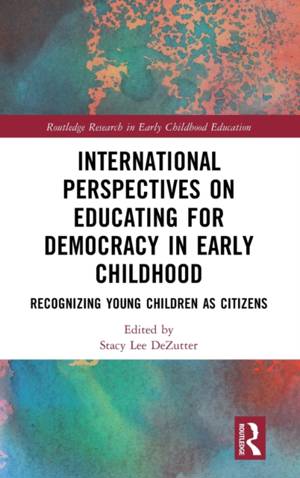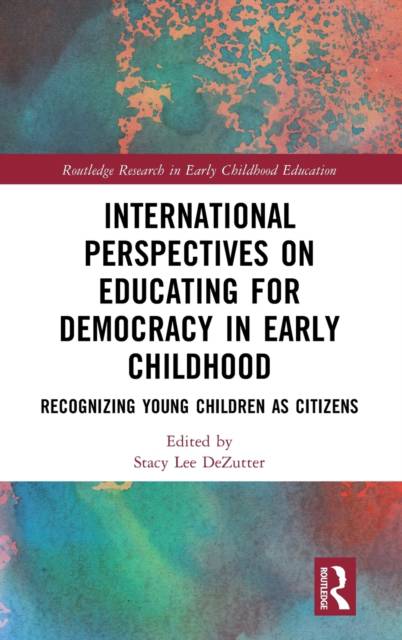
- Retrait gratuit dans votre magasin Club
- 7.000.000 titres dans notre catalogue
- Payer en toute sécurité
- Toujours un magasin près de chez vous
- Retrait gratuit dans votre magasin Club
- 7.000.0000 titres dans notre catalogue
- Payer en toute sécurité
- Toujours un magasin près de chez vous
International Perspectives on Educating for Democracy in Early Childhood
Recognizing Young Children as Citizens
Description
This book brings together established and emerging scholars from around the globe to highlight new directions for research on young children as active, engaged citizens of classrooms.
Divided into three sections, the volume draws on innovative methods to explore diverse conceptualizations of citizenship, children's understandings, and effective practice. Rejecting traditional views of children as citizens-in-preparation, the volume explores how young children can and do live as citizens, and how early childhood educational settings serve as civic forums. Chapters discuss the child-as-citizen in relation to issues including gender, class, race, tribal status, and linguistic diversity, and ultimately illustrate how sociocultural processes in early years settings can be harnessed to promote the development of democratic dispositions and skills.
This book establishes citizenship enactment in early childhood education as a robust and growing research area with the potential to shape research, policy, and practice worldwide. As such, it will appeal to researchers and academics with an interest in citizenship education, democracy, and early childhood education, as well as postgraduate students of teacher education and those working across international and comparative education more broadly.
Chapter 20 of this book is freely available as a downloadable Open Access PDF at http: //www.taylorfrancis.com under a Creative Commons [Attribution-Non Commercial-No Derivatives (CC-BY-NC-ND)] 4.0 license.
Spécifications
Parties prenantes
- Editeur:
Contenu
- Nombre de pages :
- 346
- Langue:
- Anglais
- Collection :
Caractéristiques
- EAN:
- 9781032135007
- Date de parution :
- 08-05-23
- Format:
- Livre relié
- Format numérique:
- Genaaid
- Dimensions :
- 152 mm x 229 mm
- Poids :
- 653 g

Les avis
Nous publions uniquement les avis qui respectent les conditions requises. Consultez nos conditions pour les avis.





